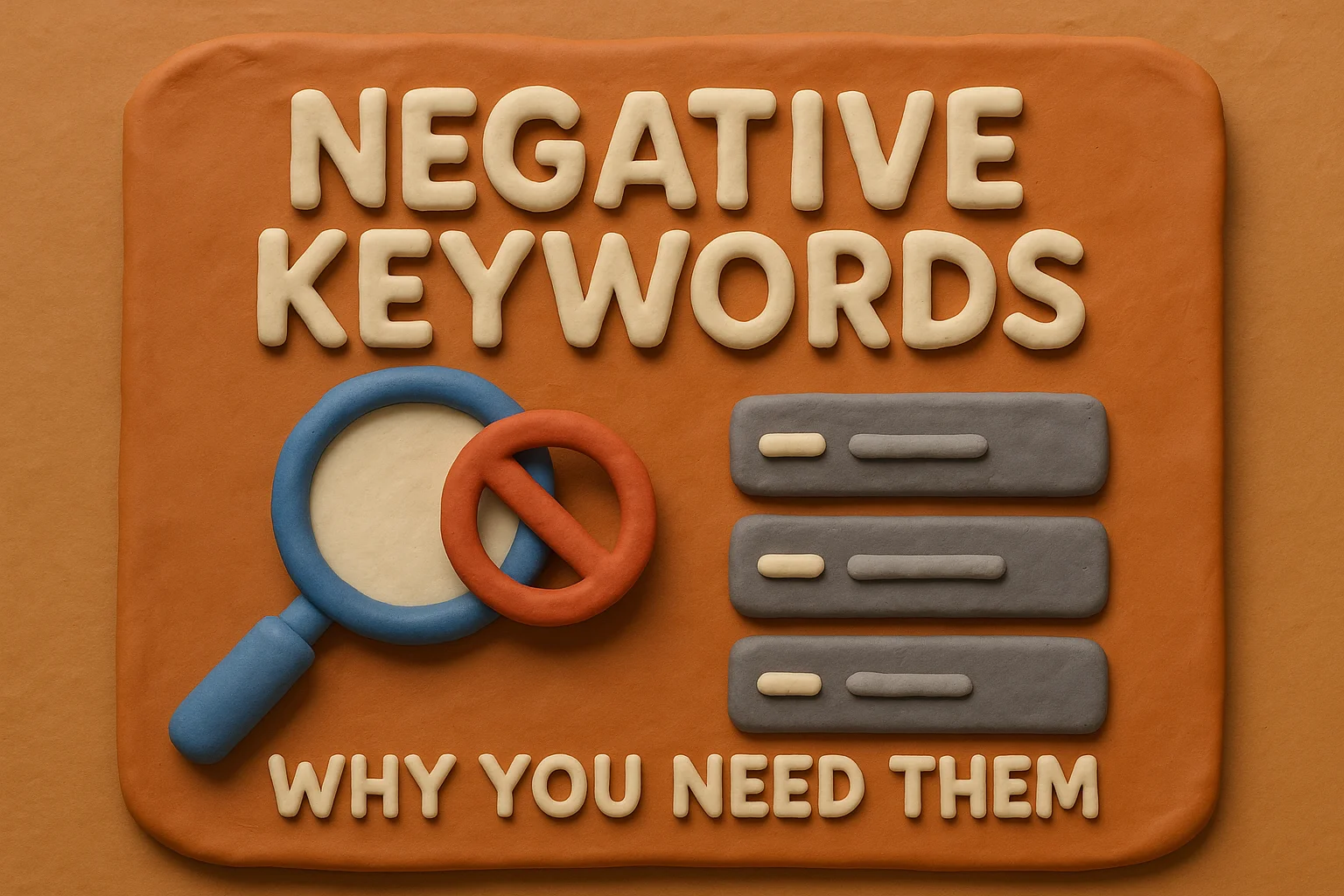Running Google Ads without negative keywords is like leaving the front door wide open—you’ll invite a flood of irrelevant traffic that drains your budget and delivers poor results.
Whether you’re new to PPC or looking to sharpen your campaigns, understanding how keywords work is essential for maximizing your ROI. In this ultimate guide, we’ll break down what keywords are, why they matter, and how to use them to keep your ads efficient and targeted.
What Are Negative Keywords?
Negative keywords are specific words or phrases you add to your PPC campaigns to prevent your ads from showing for irrelevant searches. They tell Google, “Do not display my ad when a search contains these terms.”
For example, if you sell luxury watches and add “cheap” as a negative keyword, your ads won’t appear for searches like “cheap watches” or “affordable luxury watches.”
Why Negative Keywords Are Essential
In the competitive world of paid search, wasted clicks can quickly add up. Here’s why negative keywords are a must for any Google Ads campaign:
✅ Eliminate Irrelevant Traffic: Stops your ads from showing for unrelated or low-intent searches.
✅ Protect Your Budget: Focuses your spend on high-quality, relevant clicks.
✅ Improve Click-Through Rates (CTR): By filtering out bad matches, your ads appear only to the right audience.
✅ Boost Quality Score: More relevant traffic improves your CTR and conversion rates, which can lower your cost-per-click (CPC).
✅ Increase Conversions: When you filter out irrelevant users, you attract more visitors ready to take action.
Without negative keywords, you risk wasting money on traffic that will never convert.
Common Negative Keyword Examples
Negative keywords vary by industry, but here are some common examples used to refine targeting:
| Search Intent | Example Negative Keywords |
|---|---|
| Freebies | free, giveaway, sample |
| Job Seekers | jobs, careers, employment |
| Competitor Traffic | [Competitor brand names] |
| Low-Intent Searches | cheap, discount, DIY |
| Research-Based Searches | definition, meaning, how to |
Pro Tip: Regularly review your Search Terms Report in Google Ads to identify irrelevant queries and update your negative keyword list.
How to Set Up Negative Keywords in Google Ads
- Navigate to Your Campaign or Ad Group in Google Ads.
- Click on Keywords, then Negative Keywords.
- Add keywords at the Campaign level (broad filtering) or Ad Group level (more precise filtering).
- Use different match types:
- Broad Match Negative: Excludes searches containing the keyword in any order.
- Phrase Match Negative: Excludes searches containing the exact phrase.
- Exact Match Negative: Excludes searches matching the exact term only.
For a deeper explanation of match types, see Google’s Negative Keyword Guide.
Building a Winning Negative Keyword Strategy
To get the most out of negative keywords:
✅ Start with Known Irrelevant Terms: Think about words that don’t align with your product or offer.
✅ Analyze Search Term Reports Weekly: Identify wasted spend and irrelevant clicks.
✅ Use Industry-Specific Lists: Many industries have standard negative keyword suggestions—adapt them to your needs.
✅ Keep Evolving: As your campaigns scale, new irrelevant search terms will appear. Stay proactive.
How Twofold Helps You Master Negative Keywords
At Twofold, we don’t believe in set-it-and-forget-it advertising. We constantly refine campaigns, including building smart negative keyword lists that keep your budget focused where it matters most.
Our PPC management includes:
✅ Comprehensive keyword research
✅ Ongoing search term audits
✅ Industry-specific exclusions to prevent wasted spend
✅ Alignment between your ads, landing pages, and keywords for better Quality Scores
✅ A strategy designed to lower costs and boost conversion rates
Let’s Fix the Leaks in Your Google Ads Budget
Final Thoughts
Negative keywords are one of the simplest yet most effective ways to improve your PPC performance. Without them, you’re likely paying for clicks from people who have no interest in your offer.
By strategically implementing negative keywords, you can filter out irrelevant traffic, stretch your budget further, and drive more qualified leads to your business.
Need help dialing in your PPC strategy? Twofold is here to ensure your ads only attract the right clicks.
